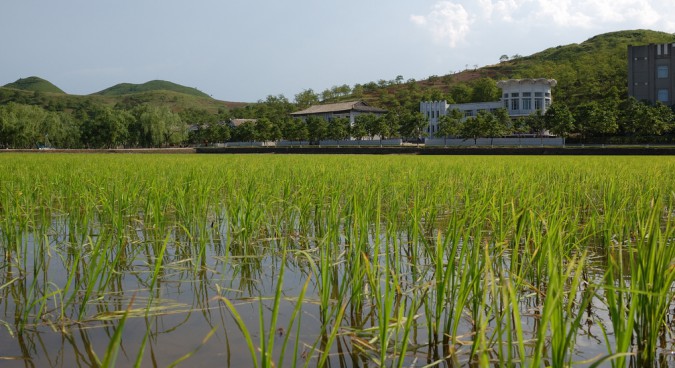Green revolution? Sustainable development in North Korea
Professor Kyung-Ae Park talks bringing environmental experts to a North Korean conference

Between October 5 and October 7, North Korea’s Ministry of Land and Environment Protection (MoLEP) and the Canada-DPRK Knowledge Partnership Program (KPP) jointly held an international conference to promote sustainable development in the DPRK.
International and domestic experts, foreign diplomats and governmental officials gathered in Pyongyang to discuss development and experiences in the fields of climate change, sustainable tourism, management of forestry, agriculture, waste, and water.
NK News sat down briefly with Professor Kyung-Ae Park, Director of the KPP at the University of British Columbia, following the conference to speak about the latest in a series of knowledge-sharing conferences organized in the DPRK.
NK News: Where did the idea for this conference come from?
Park: I organized two international conferences on Special Economic Zones (SEZ), held in Pyongyang in 2013 and 2014. Through these conferences, I came to realize that economic growth should always be coupled with sustainable practices, and that it is crucial to devise development strategies with environmental considerations in mind from the very beginning of the planning stage.
Therefore, I proposed an international conference on the environment to North Korea’s Ministry of Land and Environment Protection last year. Since then, we have been working on the conference for almost a year.
NK News: What are the biggest obstacles to organizing conferences like these?
Park: People’s perceptions about North Korea. Almost all of the foreign participants of the SEZ and sustainable development conferences had never visited North Korea before. They were SEZ or environment specialists, not North Korea specialists, and therefore had limited prior knowledge of North Korea.
In fact, most of them had quite negative perceptions of North Korea. I was often asked whether they could return home safely without being thrown into jail in Pyongyang. In addition, their families were not thrilled about their visits to North Korea.
Although I emphasized that our conference was apolitical and designed to only facilitate knowledge sharing with North Korea for human capacity building, many still had concerns. I understood their concerns and reemphasized that we would all be fine as long as we did not break any laws during our stay.
So far, all of the 35 foreign experts I invited for the conferences told me that they had rewarding experiences in Pyongyang, which dispelled their earlier worries. In the current political environment, where North Korea is facing a significant sanctions regime, it is even more difficult to organize an international conference in Pyongyang.
NK News: What would you say to critics who oppose all forms of engagement with North Korea and think it’s inappropriate?
Park: Sustainability is a cross-national issue that defies territorial boundaries. When it comes to concerns of such global nature, members of the international community do not have the luxury to choose their cooperation partners.
It is therefore of the utmost importance to engage countries like North Korea—which are isolated from the international community—in global cooperation efforts.
NK News: Any final thoughts about the conference?
Park: Conference participants told me that they had a fascinating and productive trip. They were surprised by the high level of expertise North Koreans showed at the conference and also by their excellent command of English. Some even asked me if they could explore an opportunity for joint research. They found the North Korean scholars hardworking and enthusiastic about learning.
I think the conference provided an excellent opportunity for both North Korean and foreign scholars and experts to share ideas and unique experiences. We will soon have follow-up plans for further knowledge sharing with North Korea in the field of sustainable development.
Source: https://www.nknews.org/2016/10/green-revolution-sustainable-development-in-north-korea/